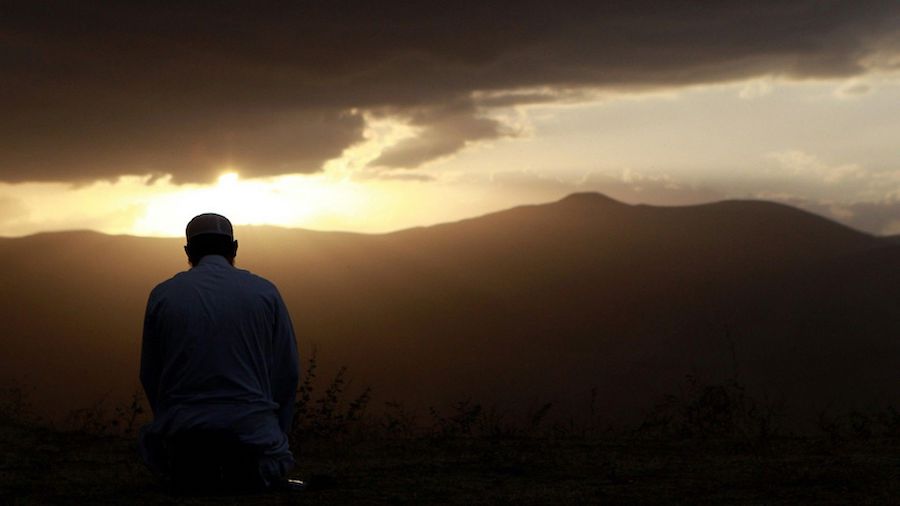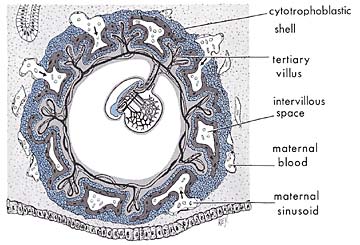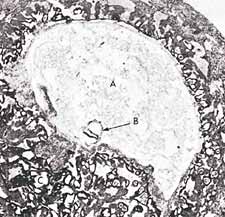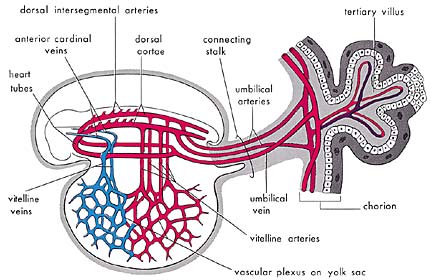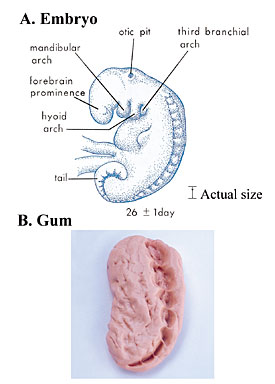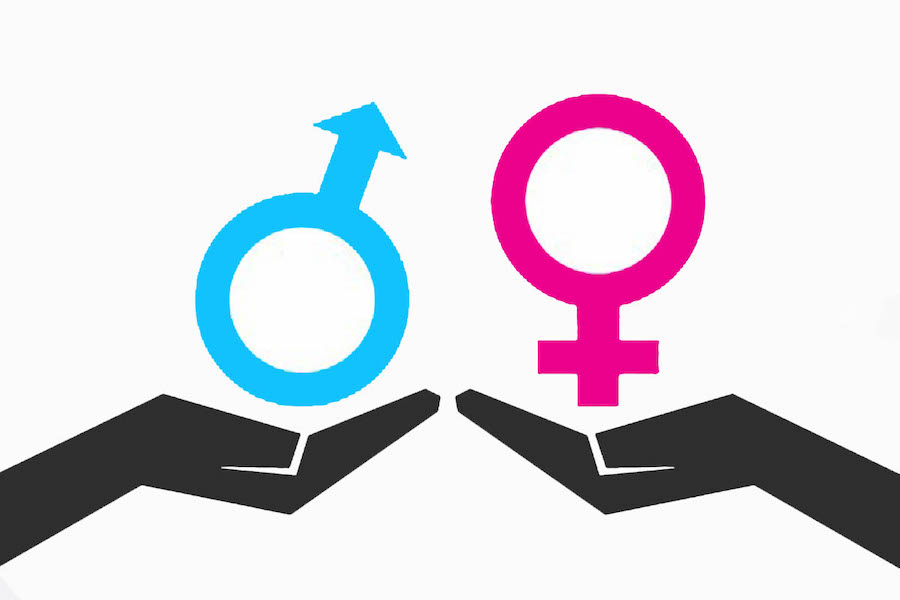بِسْمِ اللهِ الرَّحْمٰنِ الرَّحِيْمِ
With a variety of modern ideologies, philosophies, and religions competing to define what it means to be a ‘man,’ it is ever more critically important for Muslim men to understand masculinity as it was understood by the righteous predecessors.
Unlike theories of masculinity that promote the ‘alpha male’ as dominating other men and women in power, wealth and physical looks, masculinity in Islam is for a man to fulfill the good character traits and dignified manners taught by the religion as a whole.
A true Muslim man is just, kind, compassionate, forgiving, responsible, hard-working, humble, patient, forbearing, truthful, trustworthy, courageous, soft-hearted, honoring women, controlling his lower desires and impulses, fulfilling the needs of others before himself, continually refining his intellect, improving his character, seeking knowledge as a life-long learner, avoiding undignified behavior and sinful deeds, and emulating the character Prophet (ﷺ) and his righteous followers to the best of his ability.
The Islamic concept of masculinity, manhood, or ‘manliness’ (al-muru’ah) can be summarised by the broad ethical injunctions of the Quran and Sunnah, let us explore some of these.
Ibn Marzuban reported: Ali ibn Abi Talib, may Allah be pleased with him, passed by some people who were talking. Ali said, “What are you doing?” They said, “We are discussing manhood.” Ali said:
اَوْ مَا كفاكم الله عز وَجل ذَاك فِي كِتَابَة اذا يَقُول إِنَّ اللَّهَ يَأْمُرُ بِالْعَدْلِ وَالْإِحْسَانِ فالعدل الانصاف والاحسان التفضل فَمَا بَقِي بعد هَذَا
Has not Allah Almighty sufficed you in His book wherein He said, ‘Verily, Allah commands justice and excellence,’ (16:90)? Justice is to have a sense of fairness and excellence is to prefer others to yourself. What remains of manhood after this?
[al-Murū’ah 1/97]
Men ought to view themselves as composed of a mind, body, and soul, and to consistently work to improve each dimension of their being, especially their inner-character.
Al-Mawardi reported: Umar ibn al-Khattab, may Allah be pleased with him, said:
أَصْلُ الرَّجُلِ عَقْلُهُ وَحَسَبُهُ دِينُهُ وَمُرُوءَتُهُ خُلُقُهُ
The foundation of a man is his intellect, his honor is in his religion, and his manhood is in his character.
[Adab al-Dunyā wal-Dīn 17]
The righteous predecessors understood manhood to be comprehensive of all religious virtues in Islam.
‘Amru ibn Ubayd reported: It was said to Hasan al-Basri, may Allah have mercy on him, “What is manhood?” Hasan said:
الدِّينُ
It is the religion.
[al-Murū’ah 64]
And Hasan said:
إِنَّهُ لَا دِينَ لِمَنْ لَا مُرُوءَةَ لَهُ
Verily, there is no religion for one without manhood.
[al-Murū’ah 19]
One of the most important characteristics of a true Muslim man is the ability to forgive others even when the opportunity for revenge is available. This quality of compassion stands opposed to false belief of the ‘alpha male’ as domineering and vengeful, as is portrayed in our time.
Ibn Marzuban reported: It was said to Sufyan ibn ‘Uyaynah, may Allah have mercy on him, “All things are derived from the Quran, so where is manhood in it?” Sufyan said:
فِي قولة تعالي خُذِ الْعَفْوَ وَأْمُرْ بِالْعُرْفِ وَأَعْرِضْ عَنِ الْجَاهِلِينَ فَفِيهِ الْمُرُوءَة
In the saying of Allah Almighty, ‘Show forgiveness, enjoin good, and turn away from the ignorant,’ (7:199). In this is manhood.
[al-Murū’ah 1/133]
Al-Mada’ini reported: It was said to Ahnaf ibn Qays, may Allah have mercy on him, “What is manhood?” Ahnaf said:
الْحِلْمُ عِنْدَ الْغَضَبِ وَالْعَفْوُ عِنْدَ الْقُدْرَةِ
Forbearance at a time of anger and forgiveness at a time of power.
[al-Murū’ah 64]
Abdullah ibn Shumait reported: Ayyub al-Sakhtiyani, may Allah have mercy on him, said:
لَا يَنْبُلُ الْمَرْءُ وَلَا تَتِمُّ مُرُوءَتُهُ حَتَّى تَكُونَ فِيهِ خَصْلَتَانِ الْعَفْوُ عَنِ النَّاسِ وَالتَّجَاوُزُ عَنْهُمْ
A man will not hit the mark, nor fulfil his manhood, until he has two characteristics: Forgiving people and overlooking their faults.
al-Murū’ah 106
A true Muslim man should be kind towards people and love for them the same as he loves for himself. He should give off a friendly and non-threatening aura, while also putting the needs of others over himself.
Ahmad ibn Jamil reported: Muhammad ibn al-Nadr, may Allah have mercy on him, said:
أَوَّلُ الْمُرُوءَةِ طَلَاقَةُ الْوَجْهِ وَالثَّانِي التَّوَدُّدُ إِلَى النَّاسِ وَالثَّالِثُ قَضَاءُ الْحَوَائِجِ
The first part of manhood is a cheerful face. The second part is loving kindness to people. The third part is fulfilling the needs of others.
al-Mujālasah wa Jawāhir al-‘Ilm 828
In contrast, it is not the characteristic of a true man to put on a show of bravado to others, as if the sign of a man were his ability to incite fear and project strength. Rather, a real man is known by the measure of his trustworthiness and his refrain from hurting others; in a word, his virtue.
Ibn al-Mubarak reported: Umar ibn al-Khattab, may Allah be pleased with him, said:
لا يُعْجِبَنَّكُمْ مِنَ الرَّجُلِ طَنْطَنَتُهُ وَلَكِنَّهُ مَنْ أَدَّى الأمَانَةَ وَكَفَّ عَنْ أَعْرَاضِ النَّاسِ فَهُوَ الرَّجُلُ
Do not let yourselves be impressed by the roar of a man. Rather, if he fulfils the trust and restrains himself from harming the honour of people, then he will truly be a man.
al-Zuhd wal-Raqā’iq 681
Al-Bayhaqi reported: Ahnaf ibn Qais, may Allah have mercy on him, said:
لا مُرُوءَةَ لِكَذُوبٍ
There is no manhood for the liar.
Shu’ab al-Imān 6123
A true Muslim man does not allow himself to be dragged into the gutter of insults, mockery, and bitter arguments. It is the beneath the dignity of a believer to put down or make fun of others, as this contradicts the spirit of good will he should have.
Abdullah ibn Mas’ud reported: The Messenger of Allah, peace and blessings be upon him, said:
لَيْسَ الْمُؤْمِنُ بِالطَّعَّانِ وَلَا اللَّعَّانِ وَلَا الْفَاحِشِ وَلَا الْبَذِيءِ
The believer does not taunt others, he does not curse others, he does not use profanity, and he does not abuse others.
[Tirmidhi]
Ibn Abi Dunya reported: Sa’id ibn al-‘As, may Allah have mercy on him, said:
مَا شَتَمْتُ رَجُلا مُنْذُ كُنْتُ رَجُلا
I have not insulted a man ever since I became a man.
al-Ḥilm li-Ibn Abī Dunyā 119
Al-Dhahabi reported: Ibn al-Mubarak. may Allah have mercy on him, said:
مَنِ اسْتَخَفَّ بِالْإِخْوَانِ ذَهَبَتْ مُرُوءَتُهُ
Whoever belittles his brothers will lose his manhood.
Siyar A’lām al-Nubalā’ 17/251
Moreover, the authentic sign of strength is the ability to control one’s desires and impulses, especially anger. A man who cannot control himself is spiritually weak, even if he has the largest muscles of all.
Abu Huraira reported: The Messenger of Allah, peace and blessings be upon him, said:
لَيْسَ الشَّدِيدُ بِالصُّرَعَةِ إِنَّمَا الشَّدِيدُ الَّذِي يَمْلِكُ نَفْسَهُ عِنْدَ الْغَضَبِ
The strong are not the best wrestlers. Verily, the strong are only those who control themselves when they are angry.
[Bukhari]
Abu Nuaym reported: Sufyan al-Thawri, may Allah have mercy on him, said:
الْمَرْأَةُ تَمُرُّ بِالرَّجُلِ فَلَا يَمْلِكُ نَفْسَهُ عَنِ النَّظَرِ إِلَيْهَا وَلَا هُوَ يَنْتَفِعُ بِهَا فَأَيُّ شَيْءٍ أَضْعَفُ مِنْ هَذَا
A woman will pass by a man and he cannot restrain himself from looking at her lustfully although there is no benefit in it. What could be weaker than this?
Ḥilyat al-Awliyā 7/68
Mansur ibn Abdullah reported: Al-Kattani, may Allah have mercy on him, said:
العاجز من عجز عن سياسة نفسه
The truly weak man is he who is too weak to manage himself.
Tārīkh Dimashq 54/254
It is good to have a healthy, strong body, but some men are naturally more muscular than others. This blessing they have not earned has no bearing on their value to Allah Almighty.
Abdullah ibn Mas’ud, may Allah be pleased with him, was one such companion who had a smaller build than most men, yet he was absolutely huge in terms of his knowledge, righteousness, and service to Islam.
Ibn Mas’ud reported: He was harvesting toothsticks from an Arak tree and he had tiny shins. The wind blew and made him fall over, so people laughed at him. The Messenger of Allah, peace and blessings be upon him, said:
مِمَّ تَضْحَكُونَ
What are you laughing at?
They said, “O Prophet of Allah, at his tiny shins.” The Prophet said:
وَالَّذِي نَفْسِي بِيَدِهِ لَهُمَا أَثْقَلُ فِي الْمِيزَانِ مِنْ أُحُدٍ
By the one in whose hand is my soul, they will both be heavier on the Scale than the mountain of Uhud.
[Sahih Musnad Ahmad]
A true Muslim man might have a smaller build than most men, but still be better to Allah than most men. For this reason and many others, a real man should never make fun of another’s natural, physical appearance.
A true Muslim man is not ashamed to show his emotions in the appropriate moment. The Prophet (ﷺ) and his companions would cry and weep in public because their hearts were soft.
Abu Huraira reported:
زَارَ النَّبِيُّ صَلَّى اللَّهُ عَلَيْهِ وَسَلَّمَ قَبْرَ أُمِّهِ فَبَكَى وَأَبْكَى مَنْ حَوْلَهُ
The Prophet, peace and blessings be upon him, visited the grave of his mother and he wept and made others around him start weeping.
[Sahih Muslim]
Abu Mutarrif reported:
رَأَيْتُ رَسُولَ اللَّهِ صَلَّى اللَّهُ عَلَيْهِ وَسَلَّمَ يُصَلِّي وَفِي صَدْرِهِ أَزِيزٌ كَأَزِيزِ الرَّحَى مِنْ الْبُكَاءِ صَلَّى اللَّهُ عَلَيْهِ وَسَلَّمَ
I saw the Messenger of Allah, peace and blessings be upon him, while he was praying and his chest was making a sound like the boiling of a water pot because he was crying.
[Abu Dawud]
Abu Huraira reported: The Messenger of Allah, peace and blessings be upon him, said:
مَا نَفَعَنِي مَالٌ قَطُّ مَا نَفَعَنِي مَالُ أَبِي بَكْرٍ
The wealth of no one has benefited me as much as the wealth of Abu Bakr.
Abu Bakr wept and he said:
أَنَا وَمَالِي إِلَّا لَكَ يَا رَسُولَ اللَّهِ
Myself and my wealth are only for you, O Messenger of Allah.
[Musnad Ahmad]
It is healthy to release emotions and even gracefully display them in public by crying if the moment is appropriate. The idea that ‘men don’t cry’ is harmful to a man’s emotional well-being, because although he suppresses his emotions, they will eventually be released and likely in harmful ways.
A true Muslim man is chivalrous and honorable towards the women in his life: his mother, sisters, daughters, aunts, cousins, sisters in Islam, and women in general. The measure of a man’s character is directly related to how he treats women.
Abu Huraira reported: The Messenger of Allah, peace and blessings be upon him, said:
أَكْمَلُ الْمُؤْمِنِينَ إِيمَانًا أَحْسَنُهُمْ خُلُقًا وَخِيَارُكُمْ خِيَارُكُمْ لِنِسَائِهِمْ خُلُقًا
The most complete of the believers in faith are those with the most excellent character, and the best of you are the best in behaviour to their women.
[Tirmidhi]
Abdullah ibn Amr reported: The Messenger of Allah, peace and blessings be upon him, said:
خِيَارُكُمْ خِيَارُكُمْ لِنِسَائِهِمْ
The best of you are the best to their women.
[Sahih Ibn Majah]
A true Muslim man is not ashamed to appropriately express his love for the women of his family and his wives. The Prophet (ﷺ) was not shy to tell others how much he loved his wives.
Amr ibn Al-As reported: I said, “Which of the people is most beloved to you?” The Messenger of Allah, peace and blessings be upon him, said:
عَائِشَةُ
Aisha.
[Bukhari]
It is not the characteristic of true men to ‘dominate’ women, degrade them, exploit them, or brag about their sexual ‘conquests.’ In fact, it is precisely the opposite; a real man protects women who are vulnerable to abuse and injustice.
Abu Huraira reported: The Messenger of Allah, peace and blessings be upon him, said:
اللَّهُمَّ إِنِّي أُحَرِّجُ حَقَّ الضَّعِيفَيْنِ الْيَتِيمِ وَالْمَرْأَةِ
O Allah, I have issued a warning in regards to the rights of two vulnerable groups: orphans and women.
[Sahih Ibn Majah]
This is most apparent within the marriage relationship, which should be based upon love, mercy, and partnership. The worst men are those who mistreat their wives by cheating the law to avoid its ethical underpinnings. Though a scholar might hold an opinion that a husband’s misbehaviour is ‘legal’ in the sense it carries no legal consequences, it is nevertheless corrupt, immoral, sinful, and unmanly.
Raja’ reported: Dawud ibn Abi Hind, may Allah have mercy on him, said:
جَالَسْتُ الْفُقَهَاءَ فَوَجَدْتُ دِينِي عِنْدَهُمْ وَجَالَسْتُ أَصْحَابَ الْمَوَاعِظِ فَوَجَدْتُ الرِّقَّةَ فِي قَلْبِي وَجَالَسْتُ كِبَارَ النَّاسِ فَوَجَدْتُ الْمُرُوءَةَ فِيهِمْ وَجَالَسْتُ شِرَارَ النَّاسِ فَوَجَدْتُ أَحَدَهُمْ يُطَلِّقُ امْرَأَتَهُ عَلَى شَيْءٍ لَا يُسَاوِي شَعِيرَةً
I sat with the learned jurists and I found my religion with them. I sat with the preachers and I found softness in my heart. I sat with the elders of people and I found manhood among them. I sat with the worst of people and I found that one of them would divorce his wife for an offence that does not even amount to a hair.
al-Mujālasah wa Jawāhir al-‘Ilm 458
In sum, a true Muslim man is characterised by a balance of all of the virtues taught by Islam: justice, compassion, forgiveness, kindness, humility, patience, truthfulness, courage, responsibility, chivalry, and so on. The concept of the ‘alpha male’ as domineering, aggressive, vengeful, rich, thuggish, and ‘strong’ is a false and toxic belief that encourages misbehaviour in general and the mistreatment of women in particular. On the contrary, truly strong men are those capable of controlling themselves and traversing the higher, straight path of virtue in opposition to the animalistic tendencies of the human soul.
We have seen real men in the past in Islamic history, along with the best man to have ever walked the earth was our Prophet (ﷺ) . Where are the real men today?
May Allah relieve us from the corrupted view of what a true man really is.
Allah knows best.
